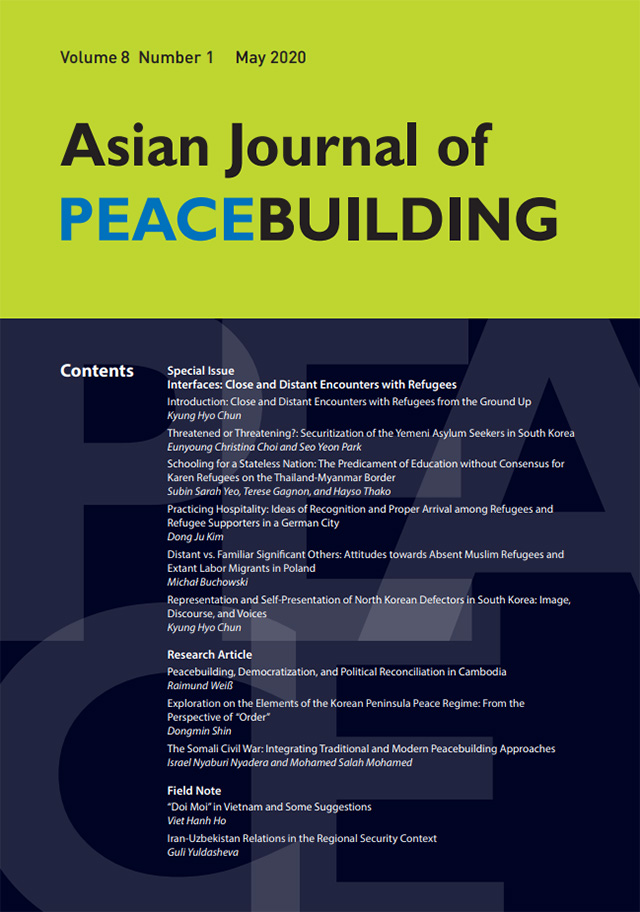- During the 2015 refugee crisis, hospitality for migrants was frequently invoked as a European value, in both secular and religious contexts. Hospitality as a valued principle varies from actual instances of hospitality, which involve conditions and moral expectations. This article examines expectations of morality in humanitarian church organizations’ responses to the refugee crisis, based on a case study of an open café project for refugees in a German metropolitan city. Notions of hosting, being a guest, choosing a home, arrival, and integration play significant roles in considerations about the organization for this regular event. The line between volunteers and visitors becomes increasingly blurred with time, but moral discourses focusing on language, translation, self-formation, and personhood recur and reinforce the distinction of host and guest.
Back Issues
Special Issue: Interfaces: Close and Distant Encounters with Refugees
Practicing Hospitality: Ideas of Recognition and Proper Arrival among Refugees and Refugee Supporters in a German City
Dong Ju Kim pp. 57-72
PDF Download

